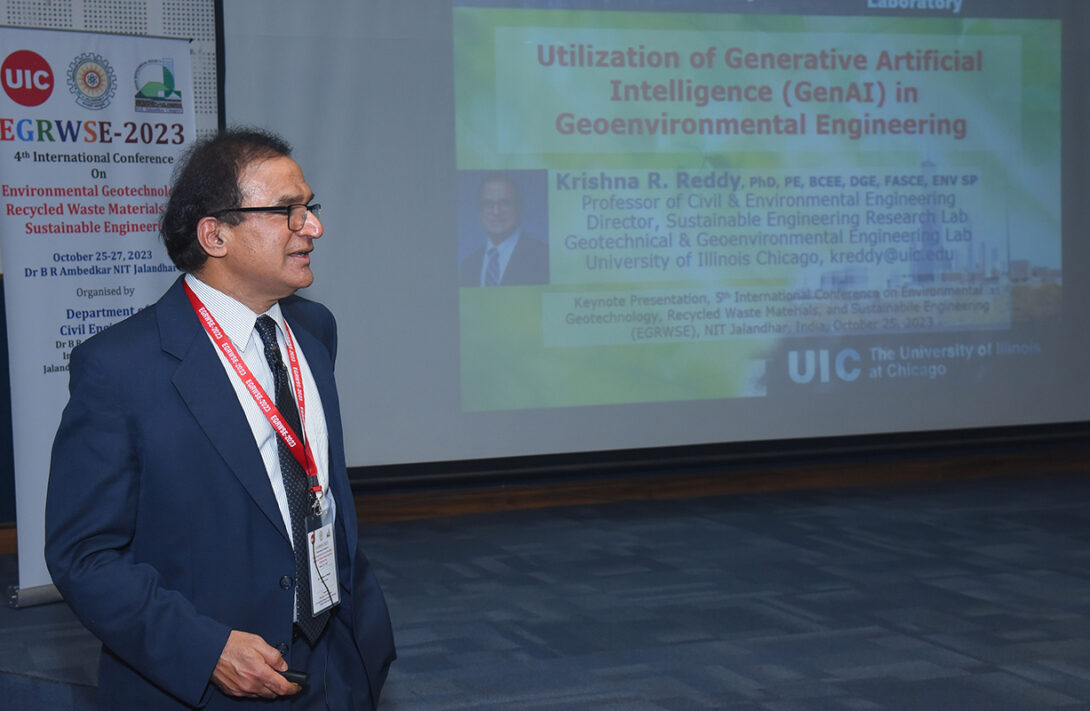The pros and cons of using generative AI in education, research, and academia
1

Artificial intelligence is growing in popularity, and generative AI (GenAI) tools such as ChatGPT are hot topics. These tools are also having an impact on education, research, and engineering as machine learning and deep learning techniques are redefining data analysis.
Recently, UIC’s Professor Krishna Reddy addressed this topic during the International Conference on Environmental Geotechnology, Recycled Waste Materials, and Sustainable Engineering (EGRWSE) at the National Institute of Technology, Jalandhar, India, where he was the keynote speaker and discussed the paper titled “Utilization of Generative Artificial Intelligence in Geotechnical and Geoenvironmental Engineering.”
Reddy explored the pros, cons, and potential pitfalls of using of GenAI as perceived by people from academia, industry, and government agencies with expertise in the geotechnical and geoenviromnental domains.
In addition to his own work with GenAI, he gathered more than survey 400 responses from faculty, students, and some industry people, which “revealed that GenAI, particularly ChatGPT, is widely employed in education, research, and with limited usage in engineering practice.”
According to respondents, the GenAI tools are primarily utilized to aid in activities such as course material preparation (by faculty), code generation, literature review, manuscript editing, and brainstorming.
“I used it to write a syllabus for Introduction to GeoEnvironmental Engineering the course that I teach,” he said. “I was amazed. It gave me the course objectives, expected outcomes, weekly plan to teach, the evaluation criteria, and everything. I was comparing it with what I teach, and it was almost the same. If somebody is developing a new course, they could use that one as a guidance and tweak it and most of the hard work is done.”
Reddy noted that using GenAI for research allowed him and his team to look at the data and provide answers, and statistical analysis, which was “a very powerful thing” because they didn’t have to do any coding.
While survey respondents identified many benefits, they also addressed limitations, drawbacks, and concerns about hallucinations, potential impact on human creativity, repetitive responses, misuse potential, and plagiarism/data privacy issues.
At UIC, Reddy asked his students to use ChatGPT as an aide for answering homework questions, including theoretical and numerical questions, and evaluate the usage of it in their answers.
“A lot of students didn’t like ChatGPT because they had to work double or triple because it was not giving the right answer,” he said. “For research, my students now use it but cautiously because there are a lot of limitations.”
In addition to the students’ feedback, Reddy expressed addition concerns about using these tools. This included cheating or factual inaccuracies due to false or illogical information that isn’t based on real data or events, and outdated information. The system is only trained until September 2021, and anything published later is not available in the system.
“This is not the solution for everything. It is a tool we must be very careful when using it.”